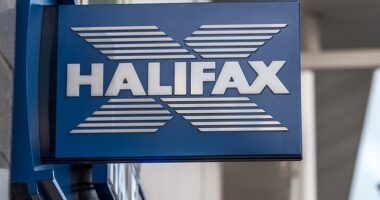THE Chancellor announced an income tax freeze in the Budget yesterday – but what does it mean for your wages?
Dubbed a “stealth tax”, Rishi Sunak said the personal allowance threshold – the amount you can earn before paying tax – will be held until April 2026.
? Read our Budget 2021 live blog for the latest news & updates
The freeze is essentially a pay cut for millions of Brits, once you take into account the rate of inflation.
The Chancellor confirmed the threshold will continue to go up as expected from April 2021 but plans to gradually raise it over the next few years have been scrapped.
For the current tax year, April 6 2020 to April 5 2021, the thresholds are set at £12,500 and £50,000.
From next year, basic rate taxpayers the threshold will be held at £12,570 and £50,270 for higher rate tax payers.
But this will be held at this rate until 2026.
What is the personal allowance?
THE personal allowance is an amount you can earn each year tax-free.
In the current tax year running from 6 April 2020 to 5 April 2021, that amount is £12,500.
From April 2021, it will rise to £12,570 and be held there until the start of the 2026 tax year.
You then pay between 20%-45% income tax depending on how much you earn. Currently:
- Low earners: If you earn £12,500 or less, you pay no income tax
- Basic rate: If you earn £12,501 to £50,000, you pay 20% tax
- Higher rate: If you earn £50,001 to £150,000, you pay 20% tax on your earnings up to 50,000 and then 40% on anything above this
- Additional rate: If you earn £150,000 or more, you pay 45% tax
Just keep in mind your personal allowance might be different if you’re entitled to certain allowances or earn a lot of money.
The marriage allowance is a tax break where one partner in a married couple can transfer some of their unused personal allowance to another.
And people with sight issues can get the blind person’s allowance which increases this tax-free amount.
And anyone who earns over £125,000 doesn’t get any tax-free personal allowance – they will pay income tax on everything they earn.
Mr Sunak said: “Nobody’s take home pay will be less than it is now, as a result of this policy.
“But I want to be clear with all Members that this policy does remove the incremental benefit created had thresholds continued to increase with inflation.”
Sarah Coles, personal finance analyst at Hargreaves Lansdown, warned the stealth tax will see an extra 800,000 people paying income tax and another 800,000 paying the higher rate.
She explained: “The more you earn, and the bigger your pay rise over the next few years, the harder this will hit you.”
How does the freeze affect wages?
The amount of income tax you pay depends on how much you earn.
The personal allowance is what you can earn before you have to start paying tax.
It usually rises in line with the Consumer Price Index (CPI) rate of inflation to keep up with increasing living costs.
The table below shows how much you’ll lose out based on what the government had previously promised.
The calculations by chartered accountants Blick Rothenberg show how the freeze could add hundreds of pounds to your tax bill over the next five years.
For basic rate tax payers – anyone earning less than £50,000 a year – will have to pay an extra £576 until the freeze ends.
It will cost them an additional £92 in the 2022/23 tax year, and another £148, £161 and £175 in the next consecutive tax years.
Higher rate tax payers will have to fork out another £3,012 over the next half a decade.
The calculations don’t include National Insurance Contributions (NICs) and are based on the Government’s income tax policy which outline increases to the threshold until the 2023/24 tax year.
Figures for the later years are based on the assumption that CPI continues to stay at 0.5%.
There are a tonne of other factors that can also affect what relative impact the threshold freeze has on wages, including NICs, wage increases and inflation.
Pension contributions, gift aid, dividend income and the marriage allowance can also have an effect.
Paul Haywood-Schiefer from Blick Rothenberg accounts said: “If your wages rise, but the tax thresholds don’t, then it means that more of your income is being taxed each year.
“Where this is particularly apparent is for those on the fringes of being subject to tax at all, and those who find they creep into the higher rate bracket.”
He added: “A short term gain in the next tax year is just the lead in to a long term hit and it will be the poorest who will suffer the most.
If you’re due a payrise in the coming tax years, Ms Coles recommends considering any employee salary sacrifice schemes to avoid being hit with a bigger tax bill.
She said: “These schemes let you give up a portion of your salary, and spend it on certain things free of tax (and sometimes national insurance).
“This includes pensions, childcare vouchers, bike-to-work schemes, and technology schemes.”
The Chancellor yesterday announced a raft of new tax measures that may affect the cash in your wallet.
Corporation tax will rise to 25% in April 2023, from 19% in a sting for businesses, while the pension lifetime allowance will be frozen at £1,073,100 until April 2026.
Inheritance tax and capital gains tax will also be frozen until April 2026.


















